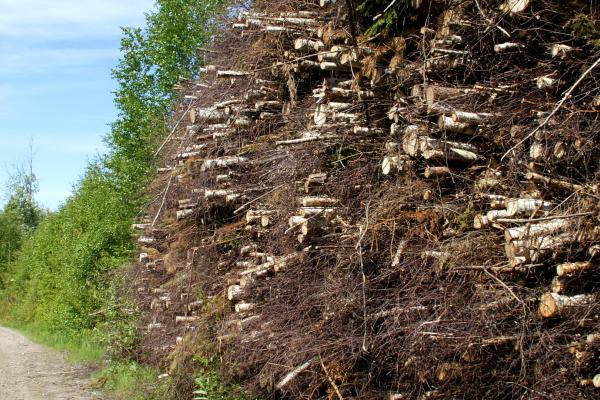The proposed Bio-Based Industries Initiative (BBI), means that the EU will help stimulate the use of by-products from agriculture, forestry and industry to replace products based on oil, such as PVC plastics and aircraft fuel.‘By finding other ways of generating bio-based products and fuel from plants and waste, the bio-based industry will significantly cut our dependency on oil and help us meet climate change targets,’ said Dr Antonio Di Giulio, Acting Director of Biotechnologies, Agriculture, and Food at the European Commission’s Directorate-General for Research and Innovation.The EU has teamed up with the Biobased Industry Consortium (BIC), a grouping of agriculture, forestry, chemicals, paper, pulp, biotechnology and energy firms, among others, for the BBI. It’s one of five Joint Technology Initiatives (JTIs) that will be funded through the EU’s Horizon 2020 research and innovation programme, set to run from 2014 until 2020.For every EUR 1 that the EU puts in, industry will contribute another EUR 2.8, up to a total of EUR 3.8 billion.’The Public Private Partnership (PPP) is a great way of getting previously unrelated industries to talk to each other and develop totally new value chains,’ said Berry Wiersum, Chief Executive of Sappi, a Belgium-based multinational pulp and paper company which is one of the BBI partners.“‘By finding other ways of generating fuel and other products from plants and waste, the bio-based industry will significantly cut our dependency on oil.’Dr Antonio Di Giulio, Acting Director Biotechnologies, Agriculture and Food, European Commission DG Research and InnovationWithout public involvement, it can often be too risky and expensive for private companies to invest in the research necessary to turn agricultural waste into products like plastic and fuel.On top of that, individual companies can rarely bring new technology to market across the EU on their own.That’s where the BBI can make a difference. At one end of the production chain, the BBI will help to find new sources of biomass, and at the other, it will try tosupport new markets for bio-based products by, for example, helping to create new standards and through public procurement.BiorefineriesIn the middle come biorefineries, which can turn renewable raw materials into plastic and fuel.One example of what could be achieved under the BBI is EuroBioRef, a biorefinery design project which received EUR 23 million funding under FP7, the EU’s current research funding programme. EuroBioRef will use multiple types of biomass – such as grasses, agricultural, and forestry residues – to generate plastics, industrial chemicals, and oil-free aviation fuel.EuroBioRef wants to improve cost efficiency by 30 %, and produce no waste. The biorefinery is made of optional modules, so that it can be installed in different locations as a large or small unit depending on the conditions. Installations like this could help the BBI create tens of thousands of new jobs across Europe, its backers hope. Not only that, public involvement in resources like EuroBioRef are designed to help make Europe a global leader in bio-based products.‘The bio-based economy race with the USA, China, and Brazil makes it essential to join public and private forces to translate the EU’s innovation potential into commercial-scale products and tap into the estimated EUR 200 billion global value of the sector,’ said BIC Executive Director, Dirk Carrez.
This article was originally published in Horizon, the EU Research and Innovation magazine.
Add to favorites:
Share:
Listing Description
Video
Documents
No documents available.
Ask KETMarket to make a contact
Connect with the Listing Owner!
💬 Please log in now to askKETMarket to make a contact. Not a member yet? Sign up for free and start connecting today!
Video
Related Funding and Finance Opportunities
Unlock Exclusive Funding Opportunities!
🔑 Get instant access to tailored funding opportunities that perfectly match your needs. This powerful feature is exclusively available to our premium members—helping you save time, stay ahead of the competition, and secure the right funding faster.
Upgrade to Premium now and never miss an important opportunity again! Already a premium member? Log in here to explore your matches.
Related Innovation Offers
Discover Tailored Innovation Offers!
🚀 Gain access to technology solutions that match your specific needs and interests—carefully selected to support your innovation goals. These offers are exclusively available to our premium members, helping you identify relevant technologies faster and start the right conversations with potential partners.
Upgrade to Premium now and explore your personalized technology matches today! Already a premium member? Log in here to view your tailored offers.
Related Knowledgeable Resources
Discover More with Premium: Related Knowledge Resources
🔒 You’re missing out on expert-curated knowledge specifically matched to this topic. As a Premium member, you gain exclusive access to in-depth articles, guides, and insights that help you make smarter decisions, faster.
Whether you’re preparing a funding proposal, researching a new market, or just need reliable information—our Premium knowledge matches save you hours of research and point you directly to what matters.
Upgrade to Premium now and instantly unlock relevant knowledge tailored to your needs! Already a member? Log in here to view your personalized content.

